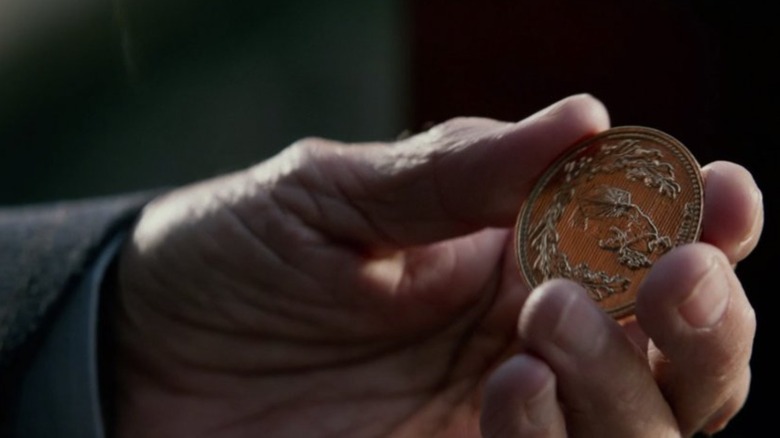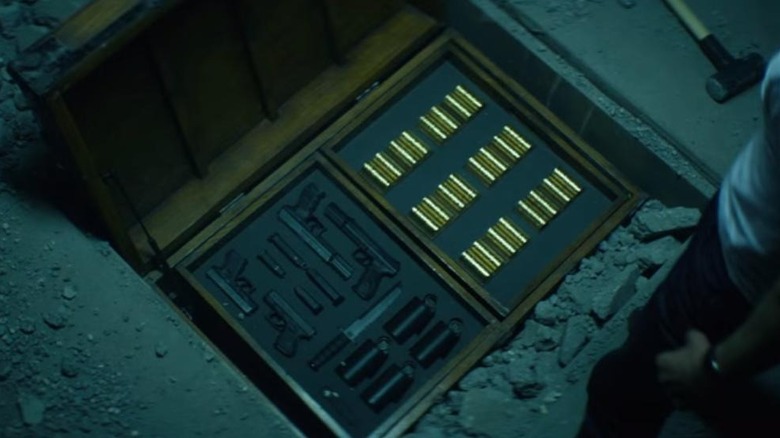The Finances Of The John Wick Universe Explained - How Do The Gold Coins Work?
Consider the gold coins of the "John Wick" universe. On one side, the words "Ex Unitae Vires." On the other, "Ens Causa Sui." Translated roughly: "Strength from unity" and "A thing generated within itself." Translated realistically: "You probably don't understand Latin, so this adds a sense of depth to the proceedings."
And that's about as apt an intro as you're going to get to the economy of "John Wick," a mysterious fiscal roller coaster that seems a lot cooler if you don't put too much thought into it, and that makes MSPaint NFTs look like a level-headed stay-the-course return to the gold standard. Gold coins, traded at the high-class Continental chain of criminal hotels, will buy you all sorts of things — a gin and tonic, a dog bath, a gun, the removal and disposal of a very dead body. Even a rudimentary understanding of currency leads the viewer to one inescapable conclusion: That must be one hell of a gin and tonic.
If the exchange rate on the enigmatic gold coins of the seedy criminal underbelly seems a little incongruous, it's probably because, you know, it is. Wildly so. Luckily, fans, economists, and even the film's creators have weighed in on the rules of the "John Wick" movies, and the results are ... still pretty murky. Sorry.
John Wick, gold coins, and economics
In a think piece for Forbes, Moody's Analytics economist Adam Ozimek tried to navigate the economy of "John Wick's" gold coins. His theory states that the coins should be thought of like tickets or tokens at an arcade, with the Continental hotels later exchanging them for cash. In this way, he posits that the hotels would be able to self-regulate taxation on the currency, while also banking on participants circulating the coins on their own, leaving their "real" money in the system to the Continental's profit. The problem, as they openly admit, is that this doesn't account for the discrepancies in value. Chuck E. Cheese's wouldn't work if you could get a whole pizza for the cost of a game of Galaga. Then again, Chuck E. Cheese's didn't work anyway. That's beside the point.
The closest thing to a fully realized explanation of the coins comes from Chad Stahelski and David Leitch, the directors behind the "John Wick" franchise. In a 2017 interview, they described the gold coins as having no set value, instead considering them to be, in essence, cryptocurrency made out of clout. One person's coin would be considered more valuable than another's depending on their reputation, in the same way that a baseball hit by Ty Cobb would be worth more than one that Bob Dole accidentally threw into the crowd when his hand slipped during the opening pitch. We're paraphrasing.
In short, the economy of "John Wick" works the same way that most things do in blockbusters: It doesn't, unless you don't think about it, in which case it's pretty cool.

